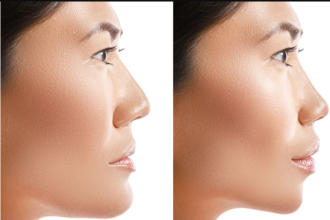There can be numerous reasons you may be dealing with poor quality sleep. You might just have trouble falling asleep. Perhaps you wake up ridiculously early or in the middle of the night. You could just toss and turn, waking up exhausted. Your sleep environment might not be conducive to sound sleep or you could work a shift that interferes with your natural circadian rhythm. You may even have a sleep disorder like sleep apnea, restless leg syndrome, or narcolepsy. Regardless of the reason, your poor quality sleep can affect your overall health in many ways.
1. Brain Functioning
Quality sleep is an important part of your body’s brain functioning. Sleep is closely linked to memory. It allows your brain to create and maintain paths that let you develop memories and learn new things. Without quality sleep, you’ll find it more difficult to concentrate. Your attention span will wane easily, making it a struggle to work or even follow the plot when watching a movie.
Insufficient sleep affects the brain in other ways, too. You may have trouble controlling your emotions, making you overreact to small stimuli. You may also be sluggish and have trouble responding to situations and people. This is because sleep regulates how quickly you process information.
While chronic bad sleep may seem to be the culprit, in actuality, even short-term sleep deprivation can interfere with brain functioning. That’s why it’s important to get quality sleep. It may mean taking supplements like non-melatonin sleep gummies or herbal options, such as John’s Wort, valerian, or kava kava.
The brain remains active during sleep, beyond just dreaming. In addition to memory formation and consolidation, the brain also removes toxins, which build during waking hours. If left to accumulate, these toxic proteins can result in a decrease in cognitive function and an increase of dementia.
On the topic of brain health, sleep is also connected with mental health conditions, such as anxiety and depression. Lack of sleep can be reflected in poor emotional control. In fact, the relationship between mental illness and sleep problems goes both ways. This means that while lack of quality sleep can result in mental health disorders, mental health issues can contribute to difficulty sleeping. If you know you’re struggling with anxiety or depression to the point you can’t sleep, it’s often best to treat those conditions.
2. Chronic Conditions
Sleep can affect your diet by altering the foods that you crave. When you sleep less than the recommended amount per night, your body may want foods that are filled with energy. Unfortunately, those foods are often rich in carbohydrates and fats.
While your body may be craving doughnuts, it’s better to make a meal high in protein, like eggs. The protein helps stabilize your blood sugar levels. It prevents them from spiking and causing a crash, which will leave you feeling tired. To get a steady supply of energy, add carbohydrates to your meal, like whole grain toast and fruit.
Sleep can also have an impact on your physical activity. Since you’ll feel fatigued, you’re less likely to exercise, even if you have a regular routine that you typically follow. Daytime sleepiness also affects your performance when you do work out. You’re liable to perform exercises incorrectly or quit earlier than usual.
Sleep deprivation can be connected to obesity. Lack of sleep causes an imbalance in the hormones ghrelin and leptin, which regulate appetite. Ghrelin is related to hunger, while leptin makes you feel full. Interestingly, leptin levels rise while you sleep, making you feel fuller. If you don’t get enough sleep, leptin levels won’t increase, so you’ll feel hungry and more likely to overeat. Any sleep disturbances can result in more ghrelin, adding to the problem.
Sleep is related to numerous chronic conditions. It regulates blood sugar, blood pressure, and cholesterol. Because of this function of sleep, a lack of rest can increase your risk of developing certain conditions, including diabetes, hypertension, and high cholesterol. Regularly getting less than seven hours of sleep each night can bring about a risk of cardiovascular disease. There’s a higher chance of death due to the disease, as well.
3. Immune Health
Decreased sleep or poor sleep can make you more likely to get sick. If you don’t get enough sleep and are exposed to a virus, even the common cold, you’re more likely to become ill. And if you do get sick, you’re liable to take longer to recover if you’re not getting quality sleep.
When you sleep, your body releases proteins known as cytokines. They are released from your immune system and some assist in promoting sleep. However, certain cytokines must be built up in your body to fight infection, deal with inflammation, and handle stress. Since poor quality sleep reduces production of cytokines, you’re liable to have trouble with these symptoms.
Antibodies and cells that fight infection are also produced during good quality sleep. It’s not an old wives’ tale to get plenty of rest when you’re sick. Your body repairs wounds and fights off infection during sleep. Getting eight hours of sleep each night consistently can strengthen your immune system and allow it to defend against infection.
Long periods without quality sleep can cause havoc with your immune system. Sleep deprivation can lead to constant low-grade inflammation, which can lead to tissue damage. It also causes immunodeficiency, which weakens the immune system and creates health problems.
Effects of Poor Quality Sleep
Regardless of the situation, you need the recommended eight hours of sleep consistently each night. Otherwise, you may be setting yourself up for sickness and health problems. If you are experiencing sleep problems, go to a sleep professional. They can help you with sleep apnea, narcolepsy, and other sleep issues. You deserve a good night’s sleep. Your health depends on it.












